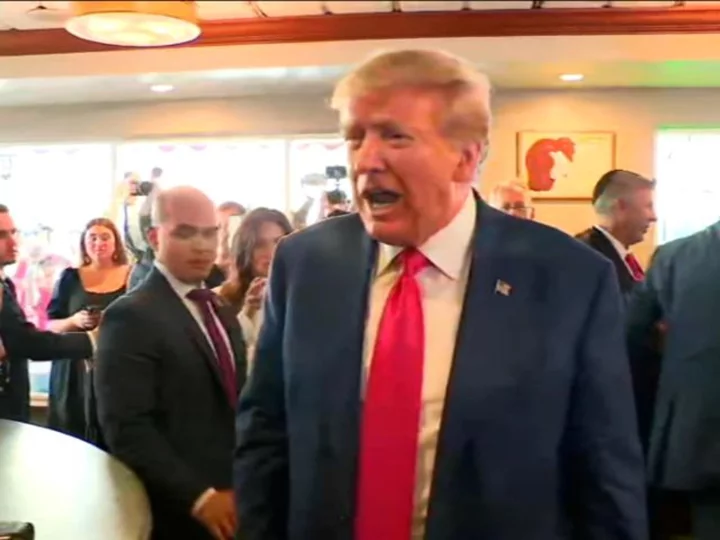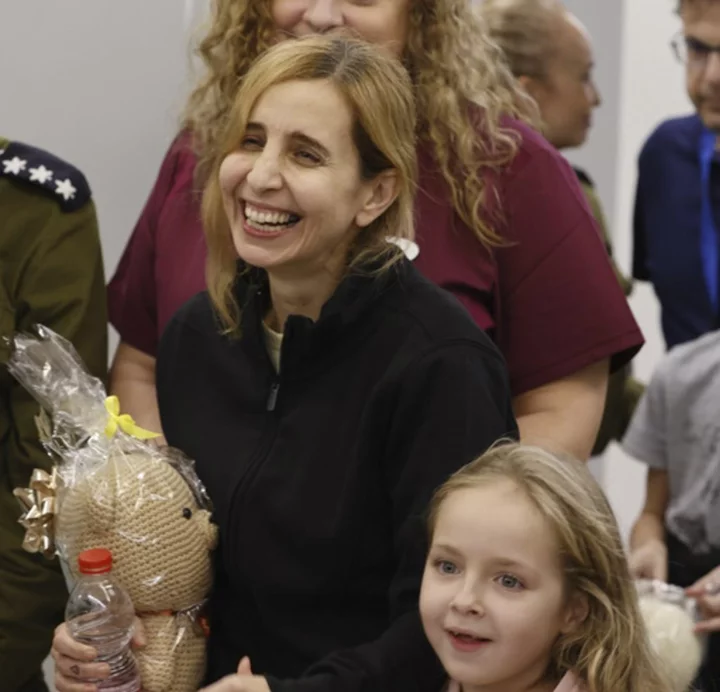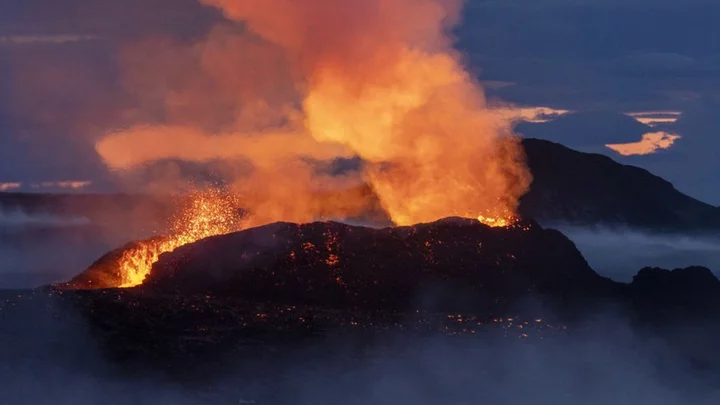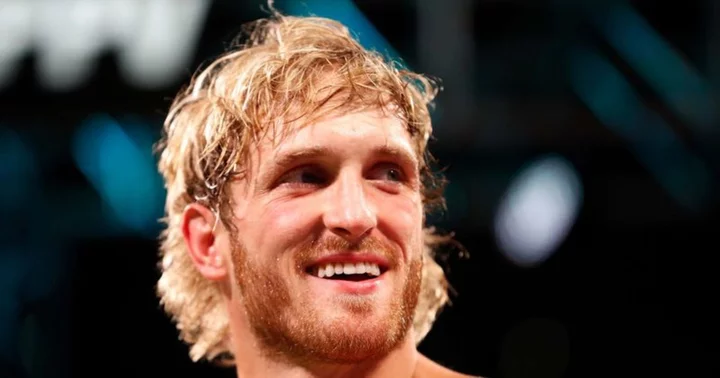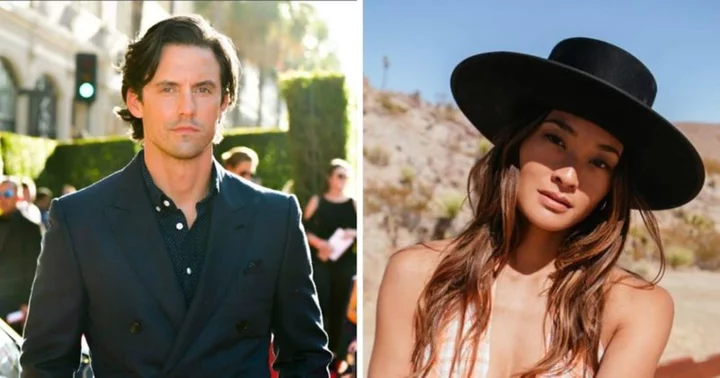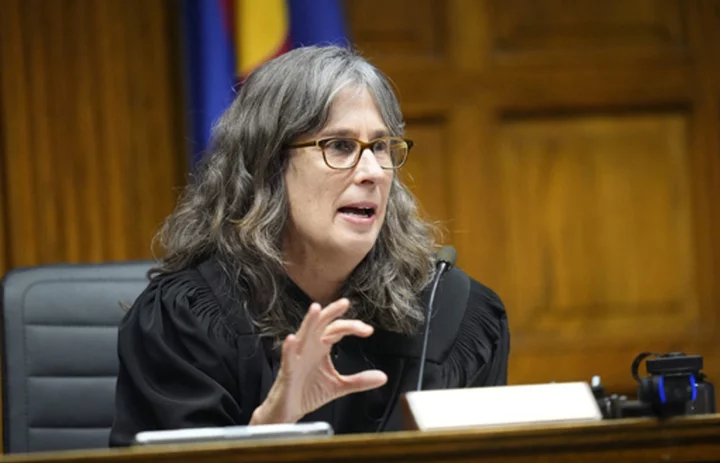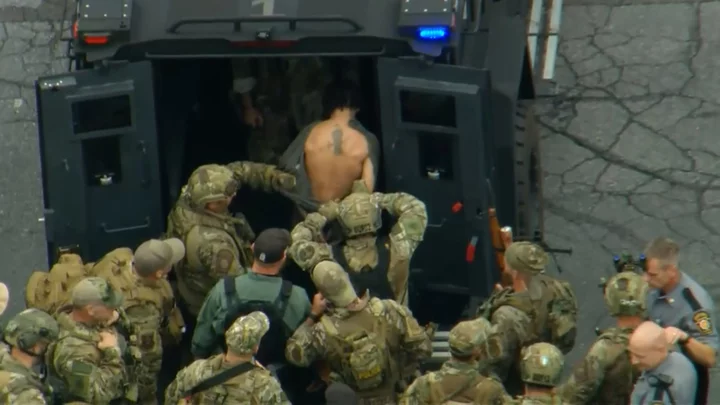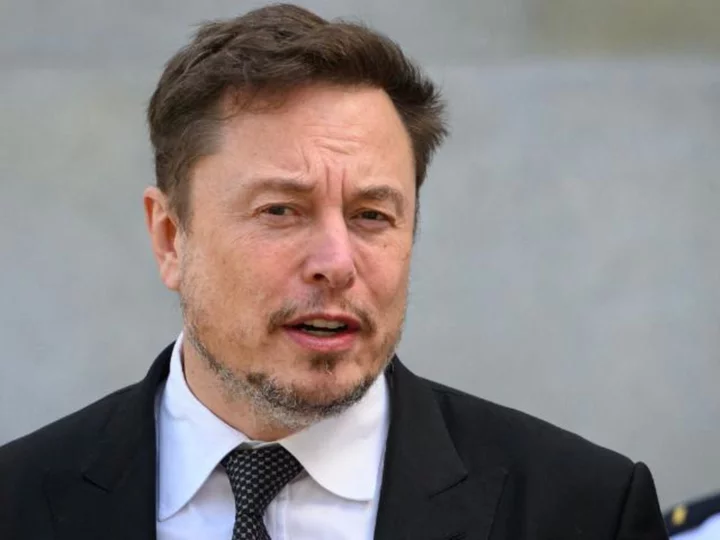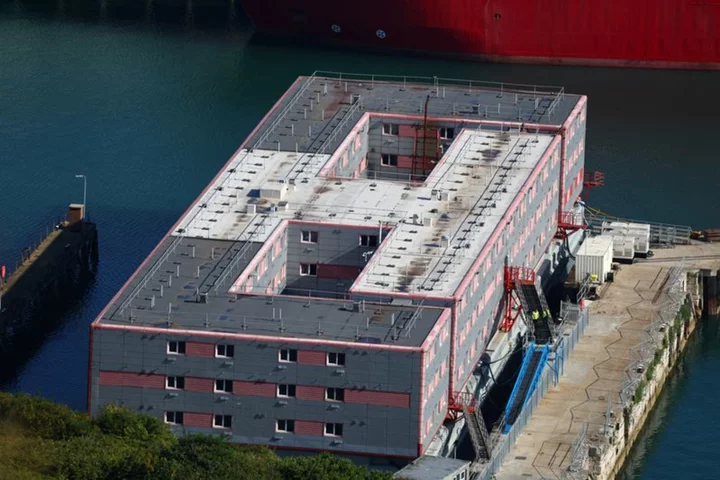Former President Donald Trump pleaded not guilty to 37 charges Tuesday in a brief but historic court appearance following his arrest and processing on federal charges.
Trump is the first former president to face federal charges following last week's indictment by special counsel Jack Smith. Trump made clear once again Tuesday that he has no plans to stop attacking the special counsel's indictment -- and the other legal peril he faces -- as he runs for president again in 2024.
Here are the takeaways from Tuesday's arraignment:
A historic moment
While Tuesday's court appearance was the second time in a little over two months that Trump had pleaded not guilty to criminal charges in a courtroom -- he also pleaded not guilty in April to charges brought by the Manhattan district attorney -- the federal charges are a more serious legal threat to the former president.
Smith was appointed special counsel roughly seven months ago, and he delivered an indictment against the former president that even some of Trump's Republican allies have said is damning, accusing Trump of keeping classified military documents, showing them off to others and obstructing the investigation into tracking them down.
Fact check: Debunking Trump's blizzard of dishonesty about his federal indictment
Regardless of what happens next with the case against Trump, the federal charges are a historic moment -- one that is sure to have a significant impact on the outcome of the 2024 GOP primary.
And in addition to the New York charges, Trump is still facing the special counsel's investigation into efforts to overturn the 2020 election and the Fulton County district attorney's probe into attempts to overturn the election in Georgia.
Judge's concerns about Trump's witness contact led to biggest drama
While most of Tuesday's hearing followed an expected script, the proceedings were dragged out by a disagreement over whether Trump should be restricted from talking to certain witnesses in the case.
That prohibition was not initially recommended in the bond proposal that prosecutors had put forward. But Magistrate Judge Jonathan Goodman raised the concern himself about Trump's contact with witnesses.
Goodman, noting that this was a typical restriction in cases filed in the Southern District of Florida, where the indictment against Trump was brought, suggested that prosecutors put together a list of witnesses and victims in the case, and that Trump avoid communicating with them as the case moved forward.
The judge also limited Trump's contact with his co-defendant, Walt Nauta, but said it would only apply to communications about the case, noting that Nauta still works closely with Trump and is with him nearly every day.
No major incidents during protests
Tuesday's court appearance came and went without any major security incidents, as supporters and protesters lined the streets surrounding the courthouse.
Local and federal law enforcement officials had been preparing for the prospect of major crowds for the court appearance, but officials said they did not have any major issues in Miami on Tuesday.
Mayor Francis Suarez, a Republican, said on CNN Tuesday just ahead of the court hearing that "so far, what we've seen is people exercising their constitutional right, which people have died for in this country, and so from my perspective, things have been peaceful."
Suarez said that protesters had "not gone beyond disrespect to violence."
"As far as I know, no arrests so far, so we're hopeful that this incident finishes without any major provocations or any major incidents and everyone can go home and move on," he said.
Trump immediately went back to campaign mode at Cuban restaurant
Trump's first stop after leaving the courthouse was Versailles, a well-known Cuban restaurant in Miami.
The restaurant was filled with his supporters ready to greet the twice-indicted president -- and they even sang him "happy birthday" (Trump's birthday is on Wednesday).
The stop immediately put Trump back in his element, surrounded by supporters looking to shake hands and take photos. It underscored the fact that Trump's legal turmoil is playing out amid a 2024 Republican primary where Trump's legal troubles have been a central storyline, both for his campaign and his presidential rivals.
"We're a nation in decline and then they do this stuff, and you see where the people are. We love the people, and you see where they are," Trump said when asked how his court appearance went.
After leaving the restaurant, Trump wrote on his social media: "Thank you Miami. Such a warm welcome on such a SAD DAY for our Country!"
Nauta has to come back
Trump pleaded not guilty to 37 felony counts. Nauta, his co-defendant, did not enter a plea because he did not have a local attorney.
Nauta, who faces six charges, made his initial appearance Tuesday alongside the former president. Nauta is being represented by Washington, DC-based attorney Stanley Woodward.
An arraignment for Nauta has been set for June 27.
Nauta traveled with Trump from Bedminster, New Jersey, to Miami and had dinner with Trump on Monday. He left the courthouse with Trump and was seen inside Versailles with the former president.
Nauta's role in the case as Trump's co-defendant will be of interest as the case moves forward. His attorney is being paid for by Trump's Save America political action committee.
Now the case turns to Judge Cannon
Tuesday's hearing was handled by Magistrate Judge Goodman, but now the case will move into the courtroom of District Judge Aileen Cannon, a Trump-appointed judge whose prior rulings have raised questions about how she will handle the case.
Cannon's approach to last year's Trump lawsuit challenging the FBI's Mar-a-Lago search raised eyebrows among legal experts across the ideological spectrum for how she appeared to bend over backward to create special legal rules in favor of the former president. Her rationale for why such a review was necessary was torn apart by a panel of right-leaning appellate judges, including two Trump appointees, on the US 11th Circuit Court of Appeals last December.
Cannon sits in Ft. Pierce, Florida, but is part of the pool of judges who are randomly assigned cases filed in West Palm Beach, where the new indictment was brought.
Goodman concluded Tuesday's hearing acknowledging his limited role in the Trump case. "My involvement ends right about now," he said.

